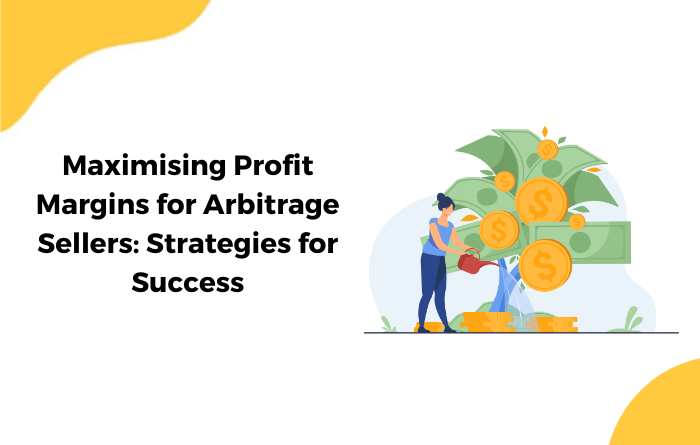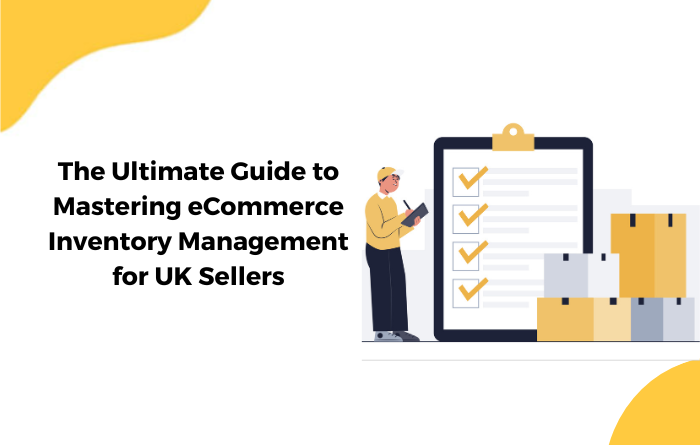
Essential Cash Flow Management Tips for Amazon FBA Sellers
Did you know that an astounding 82% of businesses close due to cash flow issues? Cash flow is often overlooked

Arbitrage selling is a popular business model among ecommerce entrepreneurs, as it offers the potential for significant profits with relatively low entry barriers. However, to succeed in this competitive landscape, it’s crucial to maximise your profit margins by carefully managing various factors that impact your profitability. In this blog, we’ll explore the importance of profit margins for arbitrage sellers, discuss the factors influencing profit margins, and provide strategies to help you improve your profits and grow your business.
Arbitrage selling involves purchasing products at a lower price in one market and reselling them at a higher price in another market to generate profits. There are two main types of arbitrage selling:
Retail arbitrage sellers purchase discounted products from brick-and-mortar retailers and resell them on online marketplaces like Amazon or eBay at a higher price. They often capitalise on clearance sales, seasonal discounts, and other promotions to source products at a lower cost.
Online arbitrage sellers source products from online retailers at a lower price and resell them on different online marketplaces at a higher price. They utilise tools and technology to identify profitable product opportunities and monitor price fluctuations across various platforms.
Maintaining healthy profit margins is crucial for arbitrage sellers to ensure their business’s sustainability and success. Higher profit margins allow you to reinvest in your business, expand your product offerings, and adapt to market changes. Moreover, having a solid profit margin can provide a competitive edge in the ecommerce market, where price competition is fierce.
Several factors can impact the profit margins of arbitrage sellers, including:
Choosing the right products to sell is crucial for maintaining healthy profit margins. High-demand products with low competition and attractive pricing can lead to higher profits.
The cost of acquiring products plays a significant role in determining your profit margins. Finding reliable suppliers and negotiating favourable terms can help lower your sourcing costs and improve profitability.
Shipping and handling expenses can have a considerable impact on your profit margins. Efficiently managing your shipping processes and finding cost-effective solutions can help minimise these expenses.
Selling on online marketplaces often involves various fees and taxes, such as listing fees, commissions, and value-added tax (VAT). Carefully managing these costs is essential to maintain your profit margins.
To maximise your profit margins as an arbitrage seller, consider implementing the following strategies:
Perform in-depth market research to identify high-demand, low-competition products with attractive pricing.
Use tools and technology, such as product research software, price tracking tools, and inventory management systems, to streamline your processes and make informed decisions. These tools can help you identify profitable opportunities, monitor price fluctuations, and optimise your operations to maximise profit margins.
Efficiently managing your supply chain can lead to lower sourcing and shipping costs, which can improve your profit margins. This includes building strong relationships with suppliers, negotiating favourable terms, and finding cost-effective shipping solutions. Additionally, consider using tools like Amazon FBA (Fulfilment by Amazon) to streamline your fulfilment process and save on shipping costs.
Understand and monitor the various fees and taxes associated with selling on online marketplaces. Look for ways to minimise these costs, such as selecting the most suitable selling plan, optimising your product listings, and staying compliant with tax regulations. Proper management of marketplace fees and taxes can help you maintain healthy profit margins.
Regularly review and adjust your pricing strategy based on market trends, competition, and your business goals. Implement dynamic pricing tools to automatically update your product prices in response to market fluctuations, ensuring that you maintain competitive pricing while maximising your profit margins.
Maximising profit margins is crucial for the success and growth of your arbitrage business. By carefully managing the factors that influence your profitability and implementing effective strategies, you can improve your profit margins and thrive in the competitive ecommerce landscape.
If you need assistance with managing your finances, improving profit margins, or any other aspect of your arbitrage selling business, we’re here to help. At Guide Hustle, we specialise in providing accounting services tailored to the unique needs of ecommerce brands, Amazon FBA sellers, Shopify sellers, and more. Contact us using the form below, and our team of experts will be happy to provide guidance and support to help you achieve your financial goals and grow your business.
Related Posts

Did you know that an astounding 82% of businesses close due to cash flow issues? Cash flow is often overlooked

Discover the Key Tax, Logistic, and Operational Factors to Consider when Selling in the UK Introduction: Greetings, fellow eCommerce enthusiasts!

Grasping eCommerce inventory management basics 🎢 Managing inventory effectively is the backbone of any thriving eCommerce business. But it’s not
©2023. All Rights Reserved by Guide Hustle